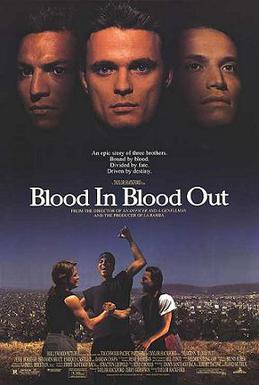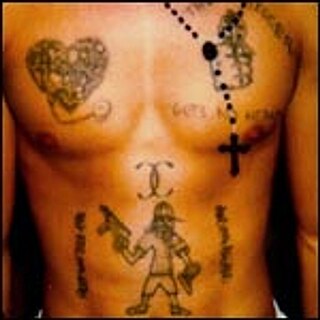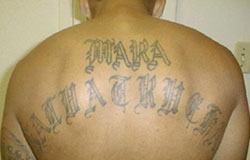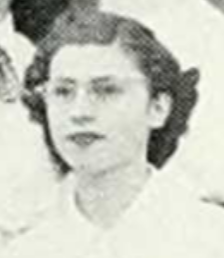Related Research Articles
A drive-by shooting is a type of assault that usually involves the perpetrator(s) firing a weapon from within a motor vehicle and then fleeing. Drive-by shootings allow the perpetrators to quickly strike their targets and flee the scene before law enforcement is able to respond. A drive-by shooting's prerequisites include access to a vehicle and a gun. The protection, anonymity, sense of power, and ease of escape provided by the get away vehicle lead some motorists to feel safe expressing their hostility toward others.

Stanley Tookie Williams III was an American gangster who co-founded and led the Crips gang in Los Angeles. He and Raymond Washington formed an alliance in 1971 that established the Crips as Los Angeles' first major African-American street gang. During the 1970s, Williams was the de facto leader of the Crips and the prominent crime boss in South Los Angeles.

The Mexican Mafia, also known as La eMe, is a Mexican American criminal organization in the United States. Despite its name, the Mexican Mafia did not originate in Mexico, and is entirely a U.S. criminal prison organization. Law enforcement officials report that the Mexican Mafia is the deadliest and most powerful gang within the California prison system.

The Yucca Corridor is a '"formerly notorious" and "once crime-ridden" stretch of Yucca Avenue in Hollywood, California, north of Hollywood Boulevard and Mann's Chinese Theater. In 2007 it was said to be "a hub for young professionals, artists, musicians and actors."

Blood In Blood Out is a 1993 American epic crime drama film directed by Taylor Hackford that has become a cult-classic film among the Mexican-American community. It follows the intertwining lives of three Chicano relatives from 1972 to 1984. They start out as members of a street gang in East Los Angeles, and as dramatic incidents occur, their lives and friendships are forever changed. Blood In Blood Out was filmed in 1991 throughout Los Angeles and inside California's San Quentin State Prison.

The Crips are an alliance of street gangs that is based in the coastal regions of Southern California. Founded in Los Angeles, California, in 1969, mainly by Raymond Washington and Stanley Williams, the Crips were initially a single alliance between two autonomous gangs; it is now a loosely connected network of individual "sets", often engaged in open warfare with one another. Traditionally, since around 1973, its members have worn blue clothing.
Varrio Nuevo Estrada, also known as VNEx3, is a Chicano criminal street gang founded in Boyle Heights, California, in the Estrada Courts housing projects. VNE is one of 34 gangs in a 15-square-mile area east of downtown Los Angeles.

Homeboy Industries is a youth program founded in 1992 by Father Greg Boyle following the work of the Christian base communities at Dolores Mission Church in Boyle Heights, Los Angeles. The program is intended to assist high-risk youth, former gang members and the recently incarcerated with a variety of free programs, such as mental health counseling, legal services, tattoo removal, curriculum and education classes, work-readiness training, and employment services. A distinctive aspect of Homeboy Industries is its structure of a multifaceted social enterprise and social business. This helps young people who were former gang members and former inmates to have an opportunity to acquire job skills and seek employment in a safe, supportive environment. Among the businesses are the Homeboy Bakery, Homegirl Café & Catering, Homeboy/Girl Merchandise, Homeboy Farmers Markets, The Homeboy Diner at City Hall, Homeboy Silkscreen & Embroidery, Homeboy Grocery, and Homeboy Cafe & Bakery in the American Airlines terminal at Los Angeles International Airport.
Peter Gadol is an American author. Gadol was born on April 15, 1964, and grew up in Westfield, New Jersey. He received an A.B. magna cum laude in English and American Literature from Harvard College in 1986. While at Harvard, he studied writing with Seamus Heaney, wrote a thesis on Wallace Stevens under the supervision of Helen Vendler, edited the literary magazine The Harvard Advocate, and was for two years a fiction intern at The Atlantic.

South Los Angeles, also known as South Central Los Angeles or simply South Central, is a region in southwestern Los Angeles County, California, lying mostly within the city limits of Los Angeles, south of downtown. It is "defined on Los Angeles city maps as a 16-square-mile rectangle with two prongs at the south end.” In 2003, the Los Angeles City Council renamed this area "South Los Angeles".
White Fence is a predominantly Mexican American street gang in the Boyle Heights neighborhood of East Los Angeles.

Crime in El Salvador has been historically extremely high due to the presence of various gangs. As of 2011, there were an estimated 25,000 gang members at large in El Salvador; with another 43,500 in prison. The best-known gangs, called maras in colloquial Salvadoran Spanish, are Mara Salvatrucha (MS-13) and their rivals 18th Street; maras are hunted by death squads, including Sombra Negra. Newer rivals include the rising mara, The Rebels 13. El Salvador is one of the three countries of the Northern Triangle of Central America, along with neighboring Guatemala and Honduras, which are all afflicted with high levels of violence.

Leslie Schwartz is an American author and teacher of creative writing. She has published two novels, Jumping the Green and Angels Crest, the latter of which was made into a 2011 film, and The Lost Chapters, a memoir of her time in jail while recovering from alcoholism.

Cartel: The Coming Invasion of Mexico's Drug Wars is a non-fiction book about the Mexican drug war written by Sylvia Longmire, an independent consultant, freelance writer, and former Air Force captain. In her book, Longmire gives an overview of Mexico's drug war and describes the impact it has on the United States' national security. Drawing from her experience as an intelligence analyst of drug trafficking and border security, the author details the holes of the current drug policy of both the United States and Mexico.
Norma Catalina Mendoza-Denton is a professor of anthropology at the University of California, Los Angeles. She specializes in sociolinguistics and linguistic anthropology, including work in sociophonetics, language and identity, ethnography and visual anthropology.

Kelly Lytle Hernández is an American academic and historian. Hernández is a tenured professor of History, African American Studies, and Urban Planning at the University of California, Los Angeles (UCLA) where she holds The Thomas E. Lifka Endowed Chair in History and is the director of the Ralph J. Bunche Center for African American Studies. In 2019 she received a MacArthur Fellowship, commonly but unofficially known as the "Genius Grant". She is an elected member of the Society of American Historians, the American Academy of Arts and Sciences, and the Pulitzer Prize Board. Since her MacArthur Grant she has been called a "rebel historian", a label she is proud and "honored" to own.
Monica Louise Smith is an American archaeologist, anthropologist, and historian of ancient cities and their household activities. She is Professor and Navin and Pratima Doshi Chair in Indian Studies in the Department of Anthropology at the University of California, Los Angeles.
Susan A. Phillips is an American anthropologist and criminologist who works as a professor of environmental analysis at Pitzer College. She is known for research on graffiti, and her books on gangs and graffiti.

Jinx Beers, born Clara Jean Beers, was an American activist and editor. She was founder of The Lesbian News, the longest-running newspaper for the lesbian community in the United States. She was also a United States Air Force veteran, a scientist studying driver impairment, an art gallery director, and a mystery writer.
Cerise Castle is an American journalist. She received the IWMF Courage in Journalism Award and the American Mosaic Journalism Prize for her investigative series on deputy gangs in the Los Angeles County Sheriff's Department.
References
- ↑ Violence, drugs, love and redemption in the LA gang life, KPCC, March 14, 2012
- ↑ Beiser, Vince (September 11, 2012), "Gangster Anthropologist: Jorja Leap / Youth violence researcher / University of California, Los Angeles", Pacific Standard
- ↑ Herold, Ann (October 1, 2011), "The Action Heroes", Los Angeles Magazine
- ↑ Jorja Leap, UCLA Luskin School of Public Affairs, retrieved 2018-02-25
- ↑ "Jorja Manos Leap - The Honor Foundation". The Honor Foundation. Retrieved 2018-03-02.
- ↑ "Jorja Leap: How to succeed in leaving gang life", The Optimists, University of California, Los Angeles, retrieved 2018-02-25
- ↑ See Leap's UCLA profile for Leap's connection to this book. Review of No One Knows Their Names:
- De Brigard, Emilie (September 1995), "Hollywood: Mecca of the Movies/No One Knows Their Names: Screenwriters in Hollywood", Visual Anthropology Review, 11 (2): 112–113, doi:10.1525/var.1995.11.2.112
- ↑ Reviews of Jumped In: What Gangs Taught Me About Violence, Drugs, Love, and Redemption:
- "Jumped In", Publishers Weekly
- "Jumped In", Kirkus Reviews , March 6, 2012
- Inderbitzin, Michelle (March 2013), "Jumped In", The Champion, National Association of Criminal Defense Lawyers, p. 60
- Schichenmeyer, Terri (June 20, 2012), "Jumped In", Our Weekly
- ↑ Reviews of Project Fatherhood: A Story of Courage and Healing in One of America's Toughest Communities:
- "Project Fatherhood", Publishers Weekly
- "Project Fatherhood", Kirkus Reviews , June 9, 2015
- Lindemeier, Bob (July 2016), "Project Fatherhood", The Champion, National Association of Criminal Defense Lawyers, p. 61
- Anderson, Tre'vell (June 11, 2015), "Jorja Leap sheds light on Watts' black fathers in 'Project Fatherhood'", Los Angeles Times